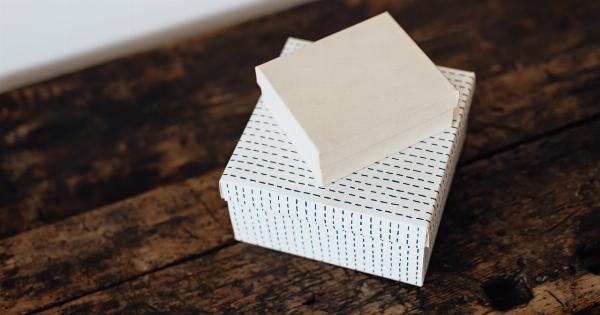Ants can be a frustrating pest to deal with, whether they are invading your home or wreaking havoc in your garden. They are highly social insects, living in large colonies and are capable of causing extensive damage to property and plants.
Fortunately, there are several effective ways to prevent ants from making themselves comfortable in your home and garden. In this article, we will discuss some helpful tips and tricks to keep ants at bay.
1. Seal Off Entry Points
The first step to preventing ants from infiltrating your home is to identify and seal off any potential entry points.
Ants are incredibly tiny creatures and can easily find their way into your home through small cracks and gaps in windows, doors, and walls. Inspect the exterior of your home for any cracks or crevices and seal them with caulk or weatherstripping. Pay particular attention to areas where utility pipes enter your home, as ants can use these as entry points as well.
2. Keep Your Home Clean
Ants are attracted to food and water sources, so keeping your home clean and free of crumbs and spills is essential in preventing an infestation.
Make sure to promptly clean up any food or drink spills, especially sweet and sticky substances that are known to attract ants. Wipe down countertops, tables, and floors regularly to remove any food residue. Additionally, store food in airtight containers to prevent ants from accessing it.
3. Remove Clutter and Debris
Clutter and debris provide hiding places for ants, making it easier for them to establish colonies in and around your home. Regularly declutter your living spaces and remove any unnecessary items that may be piling up.
Keep your garden well-maintained and trim any overgrown vegetation. By eliminating clutter and debris, you are creating an environment that is less inviting to ants.
4. Fix Moisture Issues
Ants are attracted to moisture, so addressing any moisture issues in and around your home is vital. Check for leaky pipes, faucets, and appliances and repair them promptly.
Ensure proper drainage around the foundation of your home to prevent water from accumulating. By reducing moisture levels, you are making your home less appealing to ants and other pests.
5. Use Ant Deterrents
There are several natural ant deterrents that you can use to discourage ants from entering your home and garden.
One popular method is to create a vinegar and water solution and spray it along baseboards, windowsills, and other common entry points for ants. The strong scent of vinegar disrupts the ants’ pheromone trails, making it challenging for them to navigate. Lemon juice and essential oils like peppermint and tea tree oil are also known to repel ants.
6. Create Physical Barriers
Creating physical barriers can be an effective way to prevent ants from accessing certain areas. For instance, you can use double-sided tape around the legs of tables or other surfaces where ants commonly climb up.
This sticky barrier acts as a deterrent, making it difficult for ants to pass. Another option is to sprinkle diatomaceous earth around your home and garden, which is a non-toxic powder that works by dehydrating and killing ants.
7. Store Firewood Properly
If you have firewood stacked near your home, it can attract ants and provide them with a cozy shelter. To prevent ants from infesting your home through firewood, make sure to stack it away from the house and elevate it off the ground.
This will make it less convenient for ants to access and establish colonies.
8. Maintain a Clean Garden
In addition to protecting your home, it is crucial to prevent ants from damaging your garden. Ants often protect and nurture other plant-damaging pests such as aphids, mealybugs, and scales.
Regularly inspect your plants for signs of infestation and take appropriate measures to control the pests. Keep your garden tidy by removing fallen leaves and debris, as they can provide hiding spots for ants.
9. Use Ant-Friendly Plants
Some plants naturally repel ants due to their strong fragrance or chemical compounds. Consider incorporating ant-repellent plants into your garden, such as mint, lavender, lemon balm, and marigold.
These plants can help deter ants and maintain a pest-free garden.
10. Seek Professional Help
If despite your best efforts, you find yourself dealing with a persistent ant problem, it may be time to seek professional help.
Pest control professionals have the knowledge and tools to effectively eliminate ant colonies and prevent future infestations. They can recommend specific treatments tailored to your situation and provide guidance on long-term ant prevention.































